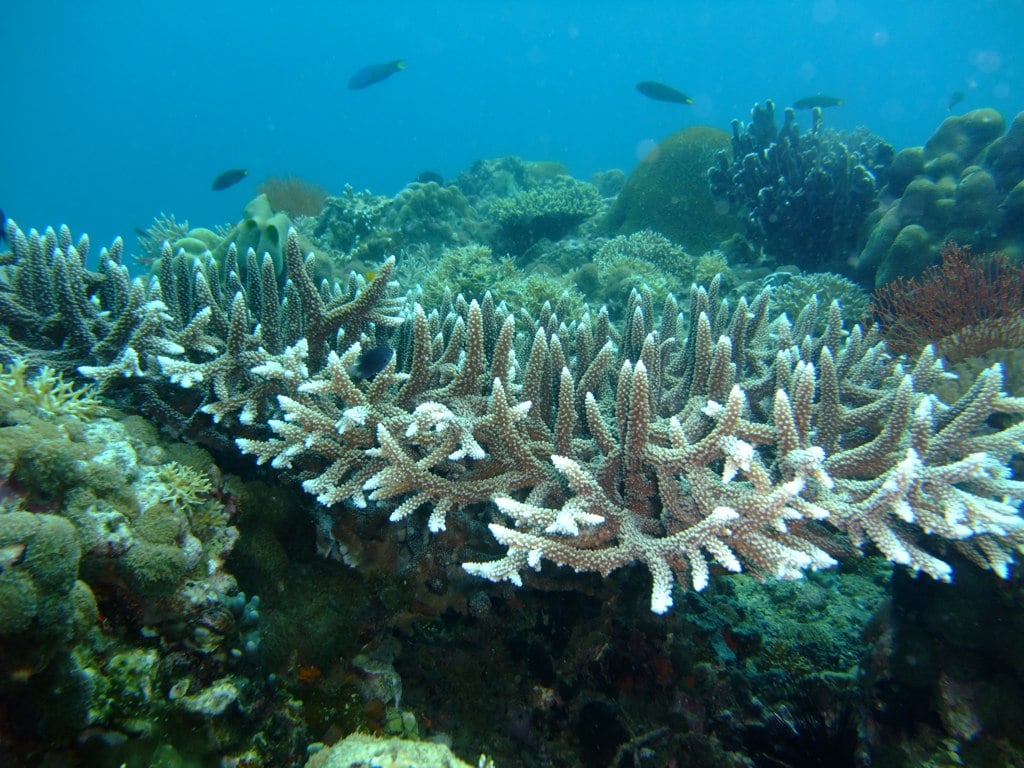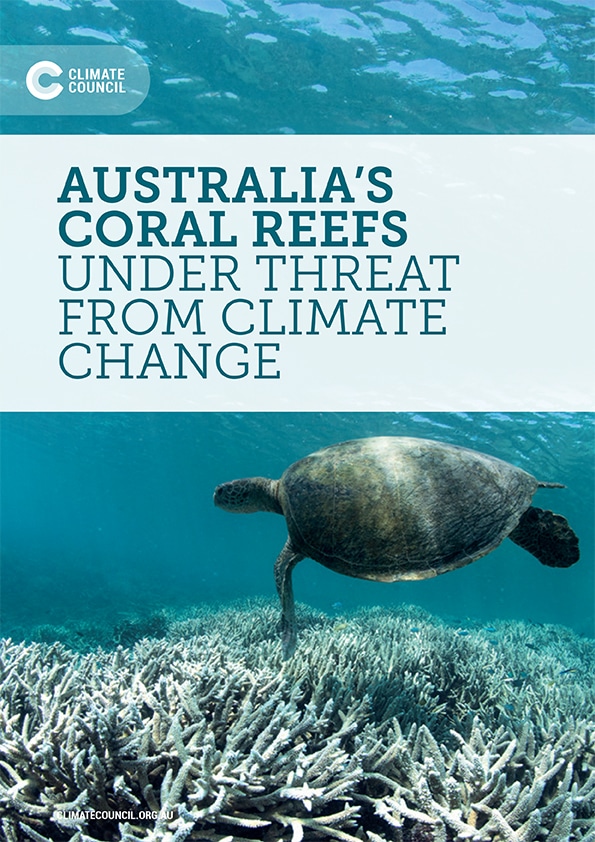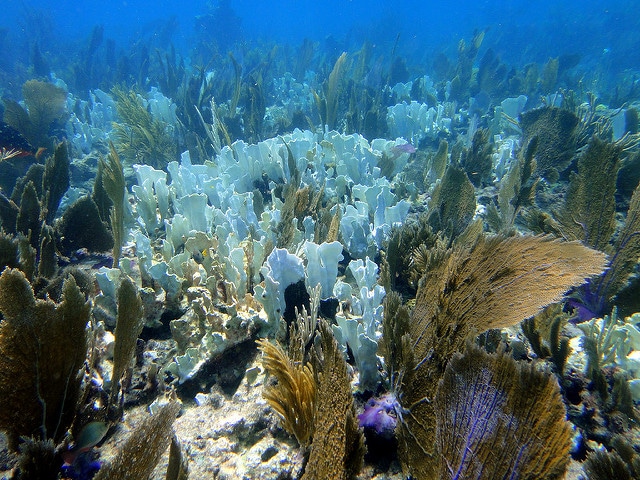Being an active scuba diver, I have seen my share of reefs. Some of them have been great with brilliant colors and teeming with marine life, while others have been dead with almost no marine life at all. As a fellow diver, I am certain that you too have had experiences like mine. The majority of scuba divers, that I have met, share my love for reefs and do what they can to protect what they are diving. They take care to ensure that they are not damaging reef nor harassing marine life. It is a reflection of our backgrounds and how we were trained. There are of course exceptions, many dive destination have concerns with divers from certain Asian countries, who do not have the background that recognize the fragility of the underwater world and did not receive the reinforcement of marine protection after training. Even so, overall divers are a ecology aware group. But is it enough?

Reef News is Bad
These past few weeks reefs seem to be mentioned every time I have turned around. Thailand has been mentioned in the news for closing a number of dive sites because of the nature of the reef. As reported in an article on this site, Thailand Closes Multiple Dive Sites, The government stepped in and indefinitely closed a number of dive sites. They stated that tourist have damaged the reef to the point that closing the entire area to tourist is the only hope for the reefs to recover. The Thai government has routinely closed sections of marine parks to allow reefs and marine life to recover. Immediately after the military coup a few years ago, the new leaders took steps to become more tourist friendly. One of the first things they did was take over the management of the taxi stands at the airport and enforce fair standards and safety rules. They also went into some tourist destinations and national parks and cleared out squatters and tore down illegal buildings. They cleaned up beaches and took steps to reduce the pollution of the country’s surrounding waters from shore based pollution. After a series of well publicized deaths in the last year related to diving, they also started taking a hard look at the management of diving and water related tourism. The problem, as I see it, is more based on the tour operators that bring tourist to snorkel the reefs or to walk the reefs with helmets or snuba. There are too many operators in Thailand and worldwide that do not share our love of reefs, they just give a few minutes of “instruction” on how to snorkel and let the tourist loose without supervision. As a result the reefs and scuba diving suffer. But tourist and tour operators are not the only enemies of the reefs.
The last week of May (2016) coming into the beginning of June has seen a number of international press reporting on massive bleaching of the Great Barrier Reef. The U.K. Based Telegraph printed an article titled “Great Barrier Reef axed from UN climate change report after Australian government intervention”. In that article they claim that the Australian government put pressure on the United Nations Educational, Scientific and Cultural Organisation (UNESCO) to exclude Australia from the climate change and world heritage sites report. That article and many more quote a government report on the state of the Great Barrier Reef. A report put out by James Cook University, which is one of the world’s leading marine science education and research centers, in cooperation with the Great Barrier Reef Marine Park Authority recently released data from a study of coral bleaching of the Great Barrier Reef.

In April, federal Environment Minister Greg Hunt said: Coral bleaching on the Great Barrier Reef is “major and significant”. “The event is still unfolding and the full extent and severity of bleaching may take several weeks to manifest,” He said the most severe bleaching had been observed between Cape York and Cooktown on the far northern part of the reef. A more recent quote on the topic is even more frighting to me. “We found on average, that 35 per cent of the corals are now dead or dying on 84 reefs that we surveyed along the northern and central sections of the Great Barrier Reef, between Townsville and Papua New Guinea,” says Professor Terry Hughes, Director of the ARC Centre of Excellence for Coral Reef Studies at James Cook University (JCU). Reading the report itself has even more shocking news. In some sections the damage thankfully is low with less than 5% kill off, but sections near Lizard island are averaging 85% kill off with at least one reef at 95%. The area between Cape York and Cooktown have always been considered pristine reefs, it is in this area that scientist operate from Lizard island studying reef and marine life. It is also where we find the Ribbon Reefs, which are often on the list of the world’s best dive sites. The lost of the reefs goes well beyond divers losing the best dive sites in the world. It will impact our lives themselves.
The reefs are in bad condition around the world and many will die. Some of it is due to the direct misuse of humans, some by human pollution and others the result of environmental conditions that may or may not be the fault of mankind.
What Can We Do to Help the Reefs?
I recently did an article here titled Diving for Art Appreciation. The focus of that article was supporting dive sites created with statues. These sites bring divers to new areas and help create new reefs improving the quantity of marine life. In addition to creating new reefs, these art reefs reduce the pressure on existing reefs by divers.
I recently had the honor of talking with Patric Douglas, the CEO of Reef Worlds. Reef Worlds is encouraging hospitality establishments, resorts and hotels, to create underwater attractions in the near shore areas of their properties. One of the things we discuss is that many, if not most, resorts do not do anything beyond the beach area of their resorts. Scuba divers and snorkelers are taken great distances away to visit reefs. Many of these resorts could develop something close to shore that would meet the desires of both divers and snorkelers. They have a few projects underway, The Pearl of Dubai is a five acre dive and snorkel tourism “Lost World” site off the coast of Dubai while the Gods of the Maya is a project in Mexico. Both of these projects are located near the shore and in around 30 feet of waters. The projects will create interesting shapes and be the building blocks of an new reef. The areas will be protected from fishing and given some help getting started. For me that is a win win situation. I rather dive on a 30 foot house reef that is teeming with fish than travel an hour to a overcrowded dive site, then dive for 30 minutes at 90 feet. I can get in more time underwater and still have more time with my non-diving friends.
I think we as scuba divers should ask resorts and dive operators what they are doing to help reefs. I also believe we should support those that are helping with our business and shame those that do not support reef protection. Each of us should do something, no matter how small to preserve the reefs. Without them we will find our sport becoming boring but more importantly we will see our food sources disappearing.
To close, I would like you all to think of this recent quote:
“About 36% of the world’s coral reefs – 72% of the U.S. reefs – are in such warm water they are under official death watch, and that could rise to up to 60% of the world’s coral by July” – Mark Eakin, NOAA (Independent Mail, 6 April 2016)

